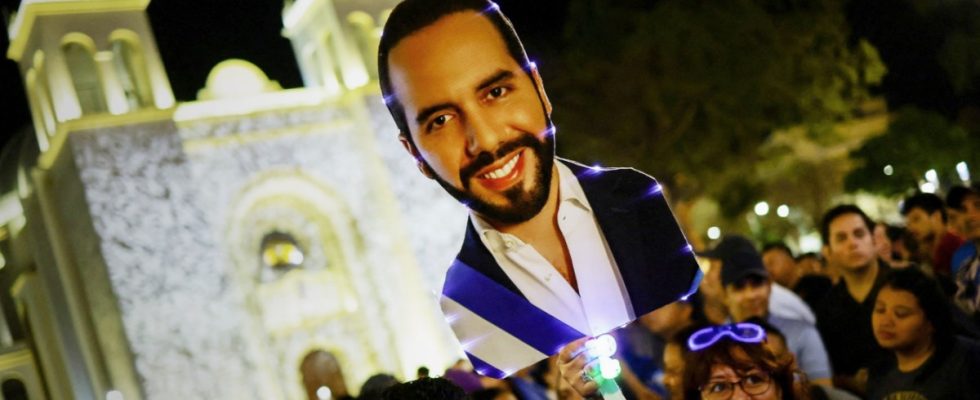Nayib Bukele, incumbent president of the small Central American country, is on the verge of a clear victory in the presidential and parliamentary elections. After counting almost a third of the votes in El Salvador, the conservative head of state has a vote share of almost 83 percent, as the highest electoral court announced late on Sunday evening (local time). And this despite the fact that a second term in office is actually not possible according to the constitution.
Bukele declared himself the winner just a few hours after the polls closed. “According to our calculations, we won the presidential election with more than 85 percent of the vote and at least 58 out of 60 places for our deputies within the assembly,” he wrote on X, referring to the 60-seat legislative assembly. At this point, the election results were still pending.
In fact, Bukele, popular with much of the electorate for his crackdown on gang violence, was considered the favorite. According to observers, this is likely to make many eligible voters overlook the fact that the 42-year-old is ruling the country with an increasingly harsh hand. In 2022, Bukele granted the police special powers and restricted certain rights of suspects. According to the government, security forces have arrested almost 75,000 suspected gang members without charges. The murder rate then fell dramatically. Human rights groups, however, see democracy in El Salvador in danger.
Bukele, the former mayor of the capital San Salvador, came to power in 2019. He still owes voters a promise to get the economy going. More than a quarter of the approximately 6.3 million Salvadorans still live in poverty. El Salvador’s constitution actually prohibits the direct re-election of the president. However, constitutional judges loyal to the government allowed Bukele to run for a second five-year term. In order to circumvent the ban, the head of state took a leave of absence for six months on December 1st – until the day of the planned inauguration on June 1st. Meanwhile, a loyal official formally takes over day-to-day political affairs, but Bukele’s influence remains effectively unimpaired.
Bukele’s critics have expressed fears that he could seek lifelong rule. According to surveys, Bukele can count on the support of around 80 percent of the population. Five candidates ran against him in Sunday’s election – including politicians from the former left-wing guerrilla FMLN and the right-wing Arena alliance. In voter surveys, the FMLN and Arena candidates each received less than ten percent. Bukele downplays concerns about democracy. The politician, who appears particularly contentious on social media, sometimes described himself as the “coolest dictator in the world” in his profile on the X platform.
On Sunday, around 6.2 million eligible voters – including 741,000 Salvadorans abroad – were called upon to re-elect not only the president but also the 60 members of parliament.

